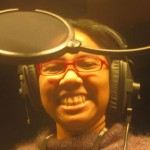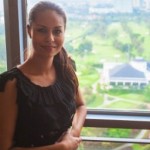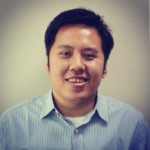
We’re excited to open up a limited number of additional places for the general public to join this year’s panel on Portrayals in the Media, featuring Fairfax’s Michael Bachelard, PortalKBR editor Citra Dyah Prastuti, Tempo’s International Editor Purwani Dyah Prabandari,
Dr Ross Tapsell and moderated by news anchor and journalist Beverly Gunawan, SCTV/Liputan6.
Panellists will discuss the role played by mass media and social networks in shaping public opinion, the role of major media outlets in influencing election outcomes, and the growing importance of social media for election campaigns.
The event will take place at 4pm on Sunday, September 14, at a location in central Jakarta to be confirmed next week. To express your interest in this event, please register using our online form. Places are available for the first 100 attendees to register, so get in early!
We’ll be providing free artisan coffee by One Fifteenth and other snacks for guests to enjoy before the 4pm start.
Speakers
-
 Michael Bachelard, Indonesia Correspondent at Fairfax Media
Michael Bachelard, Indonesia Correspondent at Fairfax MediaMichael Bachelard is the Indonesia correspondent for Fairfax media, publisher of the Sydney Morning Herald and the Age. Prior to his posting to Indonesia worked as a political reporter and workplace relations writer for 24 years
In 2005, Michael was awarded a Jefferson Fellowship. He is also a Walkley and Quill award-winning journalist. The Walkley awards recognises excellence in Australian journalism and the Quill awards, reward excellence in Victorian journalism.
Michael is the author of two books. His most recent book ‘Behind the Exclusive Brethren’ is a non-fiction book focusing on the sect ‘Exclusive Brethren’ in Australia. Michael is a Bachelor of Arts (Honours) graduate from the Australian National University.
Follow @mbachelard
-
 Citra Dyah Prastuti, Editor of PortalKBR.com
Citra Dyah Prastuti, Editor of PortalKBR.comCitra Dyah Prastuti has been a journalist with KBR (Radio News Agency) for more than 10 years. Starting out as a reporter, then editor, producer and broadcaster for live talk shows, news bulletins and an magazine show. In 2005, she pursued her Master’s degree in Critical Media and Cultural Studies in SOAS, University of London through the Chevening scholarship. She blogged extensively about her life while studying in London and in 2010 published her online stories in a book titled “Cheers, UK!” (Gagas Media).
In 2011, she received a fellowship from the ABC’s Radio National to produce a radio documentary, exploring the life of a woman and the reality of family planning in West Java in “Eros, Mother of 25 Children”. Tthe following year, her one-hour radio documentary “Timor’s Lost Generation” was broadcast by Radio National. She also teaches radio investigative journalism at the University of Indonesia and provides training for the Alliance of Independent Journalists (AJI) and Indonesian Association for Media Development (PPMN). She now leads the online platform of KBR, PortalKBR.com.
Follow @citradp
-
 Dr Ross Tapsell, Lecturer at Australian National University
Dr Ross Tapsell, Lecturer at Australian National UniversityDr Ross Tapsell researches the media in Indonesia and Malaysia. He was a recipient of the Australian Government Endeavour Postdoctorate Award, where he conducted research on press freedom and media ownership in Indonesia.
He has been a Visiting Fellow at The University of Indonesia, Airlangga University (Surabaya) and the Centre for Strategic and International Studies (Jakarta). He has also worked with The Jakarta Post and the Lombok Post.
Ross began lecturing at the School of Culture, History and Language in 2011. His book, By-Lines, Balibo and the Bali bombings: Australian journalists in Indonesia, will be published in 2014.
-
 Purwani Diyah Prabandari, Journalist at Tempo
Purwani Diyah Prabandari, Journalist at TempoPurwani Diyah Prabandari is a journalist of Tempo International Media, a publisher of Tempo magazine (Indonesian and English) and Koran Tempo daily. During her time at Tempo, she has been involved with the politics and international sections. Previously she also spent her 3 years as bureau chief in Bandung dan Yogyakarta in 2007-2010.
-
She is the recipient of several fellowships including Journalism and Democracy Course by Centre for Democratic Institute in Australia (2000) and Medialink Fellowhip, a journalist exchange program by Asialink in Australia, 2004. She also a fellow of International Visitor Program to the USA by USIA in 1997 and Senior Journalist Seminar of East West Center, US, 2009. Prabandari holds a bachelor degree of International Relations from Gadjah Mada University in Yogyakarta.
 Alison holds a Masters degree in Human Rights Law and Policy from the University of NSW and a Journalism degree from the University of Technology Sydney. She was an AusAID Australian Youth Ambassador for Development based in Jakarta, where she worked for a local NGO and World Vision Indonesia.
Alison holds a Masters degree in Human Rights Law and Policy from the University of NSW and a Journalism degree from the University of Technology Sydney. She was an AusAID Australian Youth Ambassador for Development based in Jakarta, where she worked for a local NGO and World Vision Indonesia. The CAUSINDY team is excited to announce that Professor Tim Lindsey will be returning to CAUSINDY in 2014, joining our special Q&A event, ‘
The CAUSINDY team is excited to announce that Professor Tim Lindsey will be returning to CAUSINDY in 2014, joining our special Q&A event, ‘
 Originally from Bengkulu, Sumatra, Donny currently works as a Private Sector Development Specialist with the World Bank in Jakarta. Prior to his current work at AusAid, he worked as an Advisor to the Minister at the Indonesia Investment Coordinating Board. He has also worked at both ends of the financial industry, as investment banker and microfinance analyst.
Originally from Bengkulu, Sumatra, Donny currently works as a Private Sector Development Specialist with the World Bank in Jakarta. Prior to his current work at AusAid, he worked as an Advisor to the Minister at the Indonesia Investment Coordinating Board. He has also worked at both ends of the financial industry, as investment banker and microfinance analyst.